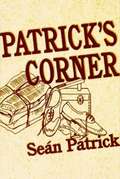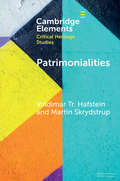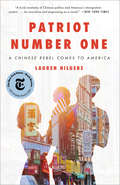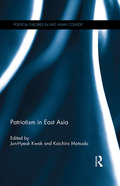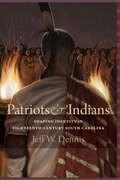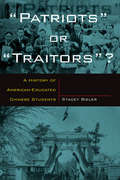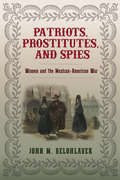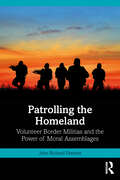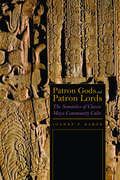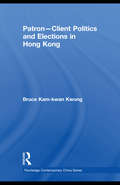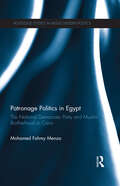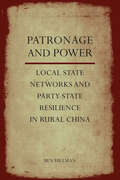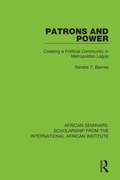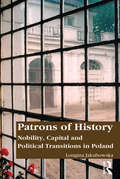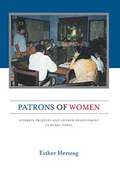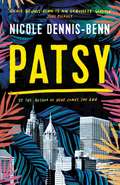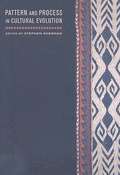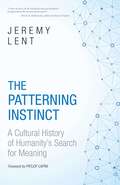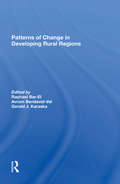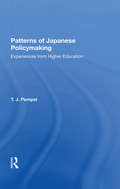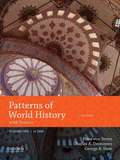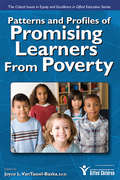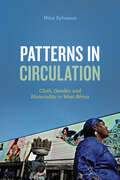- Table View
- List View
Patrick's Corner
by Seán Patrick[Back cover] "Upon reaching their "two-digit" birthdays, the six Patrick brothers became "Associate Breadwinners" in order to help out their widowed mother and earn a little money to jingle in their pockets. Patrick's Corner, the busiest street corner in town, was so named by the Patricks because they had a sort of monopoly on working the crowded locale, shining shoes and hawking the evening newspaper. With age, when one brother would move on to more lucrative pastures, the next Patrick in line would take over his job. Sean Patrick, the baby of the family, tells the story of his "comin' up" in an Irish Catholic family that was financially poor, but rich with guidance, love, respect, and support. Patrick's Corner is a collection of stories about growing up after World War II in a world where family life, neighborhood interdependence, and nurturing environments were the norm. With a strong emphasis on familial relationships, Patrick's Corner shows the best side of people living in crowded poverty as a reminder that the family has always been the basic strength of America. Almost everyone will find something to relate to in this book, whether it is the struggle for self-identity, the family's faith in God, or the tendency of older siblings to act like parents. Even if you have never had to wear hand-me-down clothes or been referred to as So-and-So's little brother or sister, these stories are sure to touch your heart. Told with sensitivity and humor, this nostalgic and sometimes bittersweet reminiscence is full of warmth, love, growing pains, and the day-to-day struggles for survival. "
Patrimonialities: Heritage vs. Property (Elements in Critical Heritage Studies)
by Valdimar Tr. Hafstein Martin SkrydstrupWith empirical touchstones from Europe, North America, Africa, Asia and the Pacific, the authors argue that heritage and property represent different approaches to subject formation, produce distinct bodies of expertise, and belong to different rationalities of government in a global patrimonial field: that cultural property is a technology of sovereignty, part of the order of the modern liberal state, but cultural heritage a technology of reformation that cultivates responsible subjects and entangles them in networks of expertise and management. While particular case trajectories may shift back and forth from rights-based claims and resolutions under the sign of cultural property to ethical claims and solutions under the sign of cultural heritage, the authors contend that there is significant analytical purchase to be gained from their distinction. Using a critical, comparative approach, they make the case for a historically grounded and theoretically informed understanding of the difference between the two terms.
Patriot Acts
by Alia MalekThis book seeks to tell the life stories of the innocent men and women who have been needlessly swept up in the "war on terror." As we approach the ten-year anniversary of 9/11, this collection of narratives gives voice to the people who have had their human rights violated here in the U.S. by post-9/11 policies and actions. Among the narrators:Young men of Arab, Muslim, South Asian, and Middle Eastern descent, who were arrested and detained or singled out for voluntary interviews because of their national origin or religion.Scholars who have been blacklisted or subjected to interrogation for their research or writings on Islam and related topics.Muslim women who have suffered from job discrimination, harassment, and assault for wearing a veil or similar head covering.
Patriot Number One: American Dreams in Chinatown
by Lauren HilgersThe deeply reported story of one indelible family transplanted from rural China to New York City, forging a life between two worlds <P><P>In 2014, in a snow-covered house in Flushing, Queens, a village revolutionary from Southern China considered his options. Zhuang Liehong was the son of a fisherman, the former owner of a small tea shop, and the spark that had sent his village into an uproar—pitting residents against a corrupt local government. <P>Under the alias Patriot Number One, he had stoked a series of pro-democracy protests, hoping to change his home for the better. Instead, sensing an impending crackdown, Zhuang and his wife, Little Yan, left their infant son with relatives and traveled to America. With few contacts and only a shaky grasp of English, they had to start from scratch. <P>In Patriot Number One, Hilgers follows this dauntless family through a world hidden in plain sight: a byzantine network of employment agencies and language schools, of underground asylum brokers and illegal dormitories that Flushing’s Chinese community relies on for survival. <P>As the irrepressibly opinionated Zhuang and the more pragmatic Little Yan pursue legal status and struggle to reunite with their son, we also meet others piecing together a new life in Flushing. <P>Tang, a democracy activist who was caught up in the Tiananmen Square crackdown in 1989, is still dedicated to his cause after more than a decade in exile. Karen, a college graduate whose mother imagined a bold American life for her, works part-time in a nail salon as she attends vocational school, and refuses to look backward. <P>With a novelist’s eye for character and detail, Hilgers captures the joys and indignities of building a life in a new country—and the stubborn allure of the American dream.
Patriotism in East Asia (Political Theories in East Asian Context)
by Jun-Hyeok Kwak Koichiro MatsudaCurrent territorial disputes between the Northeast Asian countries have stimulated a resurgence of bellicose nationalism, and threaten to upset recent efforts to achieve regional cooperation and economic integration in East Asia. Alongside this, debates over pre-1945 Japanese wartime atrocities, aggravated by still unresolved territorial disputes between Japan and its neighbours have triggered diplomatic conflicts in Japanese-South Korean relations, virulent anti-Japanese protests in China, and a dramatic increase of right-wing nationalism in Japan. Many have perceived these phenomena as inevitable corollaries, inasmuch as they regard the Northeast Asian countries as historically homogeneous and nationalistic states, and have begun to question the feasibility of the post-Cold War efforts to replace nationalism with a moderate version of civic solidarity. This book contributes to the debates surrounding patriotism and nationalism in Northeast Asia, and investigates the feasibility of non-ethnocentric patriotism in countries across the region. In doing so, it highlights the differences between Asian and Western concepts of republican patriotism via theoretical discussions of the evolving discourses on nationalism, patriotism, democracy and civic solidarity. The chapters combine theoretical discussion with historical case studies such as modern state building in late Qing Dynasty; nineteenth century Japanese political thought; and the twentieth century Korean independence movement. In turn, the contributors explore the possibilities for republican patriotism in contemporary Northeast Asia, with a focus on the Chinese term minzu, and the possibilities it holds for an alternative configuration of national identity in the age of globalization; Maruyama Masao’s theories of nationalism in Japan; the National Security Law in South Korea, and the impact it has had on the country’s political culture; and the Taiwanese movement for self-governance. Patriotism in East Asia will appeal to students and scholars of Asian politics, political theory, Asian history and peace studies, as well as to those interested in issues of nationalism.
Patriots & Indians: Shaping Identity in Eighteenth-Century South Carolina
by Jeff W. Dennis“Dennis shows, lucidly and vividly, how white South Carolinians and Natives struggled with each other through the Revolutionary era . . . a sparkling read.” —Walter Nugent, author of Habits of EmpirePatriots and Indians examines relationships between elite South Carolinians and Native Americans through the colonial, Revolutionary, and early national periods. Eighteenth-century South Carolinians interacted with Indians in business and diplomatic affairs—as enemies and allies during times of war and less frequently in matters of scientific, religious, or sexual interest. Jeff W. Dennis elaborates on these connections and their seminal effects on the American Revolution and the establishment of the state of South Carolina.Dennis illuminates how southern Indians and South Carolinians contributed to and gained from the intercultural relationship, which subsequently influenced the careers, politics, and perspectives of leading South Carolina patriots and informed Indian policy during the Revolution and early republic. In eighteenth-century South Carolina, what it meant to be a person of European American, Native American, or African American heritage changed dramatically. People lived in transition; they were required to find solutions to an expanding array of sociocultural, economic, and political challenges. Ultimately their creative adaptations transformed how they viewed themselves and others.“In this meticulously researched volume, Jeff Dennis focuses on the Cherokee and South Carolinians to explore the complex relations between Indians and colonists in the Revolutionary era. Dennis provides a valuable new perspective on America’s founders, identifying a clear link between Revolutionary radicalism and animosity toward Indians that shaped national policy long after the Revolution.” —James Piecuch, author of Three Peoples, One King
Patriots or Traitors: A History of American Educated Chinese Students
by Stacey BielerThis title sxplores the love-hate relationship between the USA and China through the experience of Chinese students caught between the two countries. The book sheds light on China's ambivelance towards the Western influence, and the use of educational and cultural exhanges as a political device.
Patriots, Prostitutes, and Spies: Women and the Mexican-American War
by John M. BelohlavekIn Patriots, Prostitutes, and Spies, John M. Belohlavek tells the story of women on both sides of the Mexican-American War (1846-48) as they were propelled by the bloody conflict to adopt new roles and expand traditional ones.American women "back home" functioned as anti-war activists, pro-war supporters, and pioneering female journalists. Others moved west and established their own reputations for courage and determination in dusty border towns or bordellos.Women formed a critical component of the popular culture of the period, as trendy theatrical and musical performances drew audiences eager to witness tales of derring-do, while contemporary novels, in tales resplendent with heroism and the promise of love fulfilled, painted a romanticized picture of encounters between Yankee soldiers and fair Mexican senoritas.Belohlavek juxtaposes these romantic dreams with the reality in Mexico, which included sexual assault, women soldaderas marching with men to provide critical supportive services, and the challenges and courage of working women off the battlefield. In all, Belohlavek shows the critical roles played by women, real and imagined, on both sides of this controversial war of American imperial expansion.
Patrolling the Homeland: Volunteer Border Militias and the Power of Moral Assemblages
by John R. ParsonsPatrolling the Homeland explores the tension surrounding the militarization of national borders through the perspective of US militia volunteers. Amidst a humanitarian crisis in which more than 7,800 people have lost their lives attempting to cross the border, US militias patrol the deserts along the Mexican border in camouflage, armed with assault rifles and night-vision goggles to "protect" the US. How and why US border militias conduct their activities is paramount to understanding similar movements, ideologies, and rhetoric around the world that oppose the movement of refugees and support the closing or restriction of international and regional borders.Based on extensive and engaging ethnography, Patrolling the Homeland explores not how people strive to be moral but how they maintain their self-perception as already and always moral individuals in spite of evidence to the contrary. This book signifies a creative and unique addition to morality and ethics through an honest and critical examination of a unique social movement indicative of contemporary society. A valuable read for anthropologists, sociologists, criminologists, and individuals interested in morality and ethics, militias, border studies, and policing.
Patron Gods and Patron Lords: The Semiotics of Classic Maya Community Cults
by Joanne BaronIn the first comprehensive treatment of Classic Maya patron deity veneration, Joanne P. Baron demonstrates the central importance of patron deity cults in political relationships between both rulers and their subjects and among different Maya kingdoms. Weaving together evidence from inscriptions, images, and artifacts, Patron Gods and Patron Lords provides new insights into how the Classic Maya polity was organized and maintained. Using semiotic theory, Baron draws on three bodies of evidence: ethnographies and manuscripts from Postclassic, Colonial, and modern Maya communities that connect patron saints to pre-Columbian patron gods; hieroglyphic texts from the Classic period that discuss patron deity veneration; and excavations from four patron deity temples at the site of La Corona, Guatemala. She shows how the Classic Maya used patron deity effigies, temples, and acts of devotion to negotiate group membership, social entitlements, and obligations between individuals and communities. She also explores the wider role of these processes in politics, arguing that rituals and discourses related to patron deities ultimately formulated Maya rulership as a locally oriented institution, which limited the ability of powerful kingdoms to create wider religious communities. Applying a new theoretical approach for the archaeological study of ideology and power dynamics, Patron Gods and Patron Lords reveals an overlooked aspect of the belief system of Maya communities.
Patron-Client Politics and Elections in Hong Kong (Routledge Contemporary China Series)
by Bruce Kam-kwan KwongThe study of patron-client politics is new to the study of Hong Kong political science. This book examines whether patron-client relations are critical to the electoral victory of candidates; how the political elites cultivate support from clients in order to obtain more votes during local elections; and tests the extent to which whether patron-client relations are crucial in order for candidates to obtain more ballots during elections. Covering patron-client politics and public administration in Hong Kong; the electoral dynamics including the Chief Executive elections and the Legislative Council elections; the cooptation of key elites by using patron-client mechanism; the study of the committees and elites who have been politically co-opted; the appointment mechanisms that have played a crucial role in patron-clientelism; and finally the China factor in the entire processes and politics of patron-client politics. Bruce Kwong finds that the better candidates cultivate patron-client relations, the greater their chance of winning the election; and the smaller the size of the electoral constituency, the greater the impact of patron-client relations. Finally, the book stresses the role of Beijing as a powerful patron shaping the Hong Kong Chief Executive and the latter’s clients and analyzes the political implications and long-term consequences of patron-client politics in Hong Kong.
Patronage Politics in Egypt: The National Democratic Party and Muslim Brotherhood in Cairo (Routledge Studies in Middle Eastern Politics)
by Mohamed Fahmy MenzaBetween the military takeover of 1952 and the collapse of the Mubarak regime in 2011, the political system of Egypt depended upon a variety of mechanisms and structures to establish and consolidate its powerbase. Among those, an intricate web of what could be described as ‘patronage politics’ emerged as one of the main foundations of these tools. Throughout the post-1952 era, political patrons and respective clients were influential in Egyptian politics, shaping the policies implemented by Egypt's rulers, as well as the tactics orchestrated by the wider population. On a macro level Patronage Politics in Egypt examines the activities of the NDP (ruling party from 1978-2011) and its opposition, the Muslim Brotherhood. On a micro level, the book uses the area of Misr Al Qadima as a case study to examine the factors that ensured the durability of patronage networks within the Egyptian polity. By examining how the local links into macro-level politics, this book portrays the socio-economic and political contexts that set the stage for the January 25 Revolution. This topical study will be an invaluable resource for students, scholars and researchers of the Middle East and Islam as well as those with a more general interest in politics.
Patronage and Power: Local State Networks and Party-State Resilience in Rural China
by Ben HillmanPower and Patronage examines the unwritten rules and inner workings of contemporary China's local politics and government. It exposes how these rules have helped to keep the one-Party state together during decades of tumultuous political, social, and economic change. While many observers of Chinese politics have recognized the importance of informal institutions, this book explains how informal local groups actually operate, paying special attention to the role of patronage networks in political decision-making, political competition, and official corruption. While patronage networks are often seen as a parasite on the formal institutions of state, Hillman shows that patronage politics actually help China's political system function. In a system characterized by fragmented authority, personal power relations, and bureaucratic indiscipline, patronage networks play a critical role in facilitating policy coordination and bureaucratic bargaining. They also help to regulate political competition within the state, which reduces the potential for open conflict. Understanding patronage networks is essential for understanding the resilience of the Chinese state through decades of change. Power and Patronage is filled with rich and fascinating accounts of the machinations of patronage networks and their role in the ruthless and sometimes violent competition for political power.
Patronage and Power: Local State Networks and Party-State Resilience in Rural China
by Ben HillmanPower and Patronage examines the unwritten rules and inner workings of contemporary China's local politics and government. It exposes how these rules have helped to keep the one-Party state together during decades of tumultuous political, social, and economic change. While many observers of Chinese politics have recognized the importance of informal institutions, this book explains how informal local groups actually operate, paying special attention to the role of patronage networks in political decision-making, political competition, and official corruption. While patronage networks are often seen as a parasite on the formal institutions of state, Hillman shows that patronage politics actually help China's political system function. In a system characterized by fragmented authority, personal power relations, and bureaucratic indiscipline, patronage networks play a critical role in facilitating policy coordination and bureaucratic bargaining. They also help to regulate political competition within the state, which reduces the potential for open conflict. Understanding patronage networks is essential for understanding the resilience of the Chinese state through decades of change. Power and Patronage is filled with rich and fascinating accounts of the machinations of patronage networks and their role in the ruthless and sometimes violent competition for political power.
Patrons and Power: Creating a Political Community in Metropolitan Lagos (African Seminars: Scholarship from the International African Institute)
by Sandra T. BarnesOriginally published in 1986, this urban political ethnography focusses on Mushin, a large suburb of metropolitan Lagos, Nigeria. It explores the mechanisms which bridge the various social categories to bring about political interaction. The book traces the development of Mushin from a collection of rural villages to its full status as a political community. It analyses structures and processes and the ways in which, since the 19th century, the system has responded to colonial, civilian and military regimes. It examines the tactics ordinary people use to meet their needs and the ways in which political aspirants manipulate the system to acquire and wield power.
Patrons of History: Nobility, Capital and Political Transitions in Poland
by Longina JakubowskaThis book explores resilience, social capital and relationships of power in an examination of the manner in which capital can be converted from one form to another. Through a study of the survival of the Polish gentry, in spite of the communist regime's attempts to disempower and discredit them through land reform and high-profile trials, Patrons of History shows how the gentry managed not only to survive as a class, but also to remain influential. By revitalising older forms of cultural capital invested with education and transnational networks, the gentry were able to transform wealth, land, patronage, lifestyle and the ability to define patriotism and authorise a version of history, so as to ensure that noble heritage remained an advantageous resource in the face of communist opposition. Drawing on rich interview material spanning fifteen years, Patrons of History sheds light not only on communism as it existed and the stratification that persisted under such regimes, but also on the functioning of relationships of power and the ways in which privilege can be studied in the contemporary world. As such, this book will appeal to anthropologists, sociologists, ethnographers and historians interested in cultural and social capital, inequality and resistance.
Patrons of Women: Literacy Projects and Gender Development in Rural Nepal
by Esther HertzogAssuming that women’s empowerment would accelerate the pace of social change in rural Nepal, the World Bank urged the Nepali government to undertake a “Gender Activities Project” within an ongoing long-term water-engineering scheme. The author, an anthropologist specializing in bureaucratic organizations and gender studies, was hired to monitor the project. Analyzing her own experience as a practicing “development expert,” she demonstrates that the professed goal of “women’s empowerment” is a pretext for promoting economic organizational goals and the interests of local elites. She shows how a project intended to benefit women, through teaching them literary and agricultural skills, fails to provide them with any of the promised resources. Going beyond the conventional analysis that positions aid givers vis-à-vis powerless victimized recipients, she draws attention to the complexity of the process and the active role played by the Nepalese rural women who pursue their own interests and aspirations within this unequal world. The book makes an important contribution to the growing critique of “development” projects and of women’s development projects in particular.
Patsy: A Novel
by Nicole Dennis-BennFrom award-winning novelist Nicole Dennis-Benn comes this beautifully layered portrait of motherhood, immigration and sacrifice For Patsy, a visa to America is her ticket to freedom, a passport to the 'land of opportunity'. She yearns to be reunited with Cicely, her oldest friend and secret lover, but her plans do not include her religious mother or even her young daughter, Tru. As Patsy struggles to survive as an undocumented migrant, Tru grapples with her own questions of identity and sexuality. <P><P> Can she ever understand, or even forgive, her mother's decision to leave? Dancing between the jittery streets of New York and the languid rhythms of Jamaica, Patsy is the story of what it means to be a mother, a daughter, a woman and, ultimately, a survivor. A passionate, moving and fiercely urgent novel tracing threads of love that stretch across years and oceans.
Pattern and Process in Cultural Evolution
by Stephen ShennanThis volume offers an integrative approach to the application of evolutionary theory in studies of cultural transmission and social evolution and reveals the enormous range of ways in which Darwinian ideas can lead to productive empirical research, the touchstone of any worthwhile theoretical perspective. While many recent works on cultural evolution adopt a specific theoretical framework, such as dual inheritance theory or human behavioral ecology,Pattern and Process in Cultural Evolution emphasizes empirical analysis and includes authors who employ a range of backgrounds and methods to address aspects of culture from an evolutionary perspective. Editor Stephen Shennan has assembled archaeologists, evolutionary theorists, and ethnographers, whose essays cover a broad range of time periods, localities, cultural groups, and artifacts.
Patterning Instinct: A Cultural History of Humanity's Search for Meaning
by Jeremy LentWinner of the 2017 Nautilus Silver Award!This fresh perspective on crucial questions of history identifies the root metaphors that cultures have used to construct meaning in their world. It offers a glimpse into the minds of a vast range of different peoples: early hunter-gatherers and farmers, ancient Egyptians, traditional Chinese sages, the founders of Christianity, trail-blazers of the Scientific Revolution, and those who constructed our modern consumer society.Taking the reader on an archaeological exploration of the mind, the author, an entrepreneur and sustainability leader, uses recent findings in cognitive science and systems theory to reveal the hidden layers of values that form today's cultural norms. Uprooting the tired cliches of the science-religion debate, he shows how medieval Christian rationalism acted as an incubator for scientific thought, which in turn shaped our modern vision of the conquest of nature. The author probes our current crisis of unsustainability and argues that it is not an inevitable result of human nature, but is culturally driven: a product of particular mental patterns that could conceivably be reshaped. By shining a light on our possible futures, the book foresees a coming struggle between two contrasting views of humanity: one driving to a technological endgame of artificially enhanced humans, the other enabling a sustainable future arising from our intrinsic connectedness with each other and the natural world. This struggle, it concludes, is one in which each of us will play a role through the meaning we choose to forge from the lives we lead.
Patterns Of Change In Developing Rural Regions
by Avrom Bendavid-Val Raphael Bar-El Dafna Schwartz Gerald KaraskaDevelopment specialists often overlook the feet that the towns of a rural region play as essential a role in the region's economy as does agriculture, and they design and implement broad strategies without due recognition of the unique and dynamic character of each individual region. Proper analysis requires consideration of the changing nature of rural regions and the principal agents of change. The contributors to this volume argue that development strategists should focus on processes rather than on products by taking the nonfarm aspects, as well as the farm aspects, of rural development into account and by recognizing that land, labor, water, and technology do not alone lead to balanced regional and agricultural development. The analytical approaches presented in this book incorporate wide-ranging variables from the urban space of rural regions—markets, towns, service industries, and organizations—that have major impacts on the rural regional economy. These methodologies aim at improving rural regional development processes.
Patterns Of Japanese Policy Making: Experiences from Higher Education
by T. J. PempelThe author of this study of policymaking in postwar Japan contends that the prevailing perceptions of the subject advanced to date are inadequate. Professor Pempel identifies three distinct patterns of policymaking within Japan's current system of hegemonic pluralism. One of these, "policymaking by camp conflict, "is associated with broad, highly emotional, ideological issues that polarize political forces and that are resolved only after widely publicized battles in the Diet, the media, and the streets. A second pattern, "incremental policymaking, "involves nonideological problems that are settled largely through bureaucratic procedures almost totally removed from public scrutiny. A third pattern, "pressure group policymaking, "pits a limited number of special interest groups against one or more government agencies; this process is less conflictual and public than camp conflict, but more visible and antagonistic than incremental policymaking.
Patterns Of World History: Volume One to 1600 With Sources
by Peter Von Sivers George B. Stow Charles A. DesnoyersPatterns of World History, Third Edition, offers a distinct framework for understanding the global past through the study of origins, interactions, and adaptations. Authors Peter von Sivers, Charles A. Desnoyers, and George B. Stow examine the full range of human ingenuity over time and space in a comprehensive, evenhanded, and critical fashion. <P><P> The authors offer a distinct intellectual framework for the role of innovation and historical change through patterns of origins, interactions, and adaptations. Each small or large technical or cultural innovation originated in one geographical center or independently in several different centers. As people in the centers interacted with their neighbors, the neighbors adapted to--and in many cases were transformed by--the innovations. By "adaptation" the authors include the entire spectrum of human responses, ranging from outright rejection to creative borrowing and, at times, forced acceptance. Seeing patterns of various kinds in historical development brings to light connections and linkages among peoples, cultures, and regions that might not otherwise present themselves. <P><P> Such patterns can also reveal differences among cultures that other approaches to world history tend to neglect. For example, the differences between the civilizations of the Eastern and Western Hemispheres are generally highlighted in world history texts, but the broad commonalities of human groups creating agriculturally-based cities and states in widely separated areas also show deep parallels in their patterns of origins, interactions, and adaptations. Such comparisons are at the center of Patterns of World History. This kind of analysis offers insights into how an individual innovation was subsequently developed and diffused across time and space--that is, the patterns by which the new eventually becomes a necessity in daily lives. Through all of this we gain a deeper appreciation of the unfolding of global history from its origins in small, isolated areas to the vast networks of global interconnectedness in our present world. <P><P> The authors' use of a broad-based understanding of continuity, change, and innovation allows them to restore culture in all its individual and institutionalized aspects--spiritual, artistic, intellectual, scientific--to its rightful place alongside technology, environment, politics, and socioeconomic conditions. Understanding innovation in this way allows this text to help illuminate the full range of human ingenuity over time and space in a comprehensive, evenhanded, and open-ended fashion.
Patterns and Profiles of Promising Learners from Poverty
by Joyce Vantassel-BaskaPatterns and Profiles of Promising Learners From Poverty provides a comprehensive review of the issues surrounding the education and inclusion of promising students from poverty in gifted and talented programs.
Patterns in Circulation: Cloth, Gender, and Materiality in West Africa
by Nina SylvanusIn this book, Nina Sylvanus tells a captivating story of global trade and cross-cultural aesthetics in West Africa, showing how a group of Togolese women--through the making and circulation of wax cloth--became influential agents of taste and history. Traveling deep into the shifting terrain of textile manufacture, design, and trade, she follows wax cloth around the world and through time to unveil its critical role in colonial and postcolonial patterns of exchange and value production. Sylvanus brings wax cloth's unique and complex history to light: born as a nineteenth-century Dutch colonial effort to copy Javanese batik cloth for Southeast Asian markets, it was reborn as a status marker that has dominated the visual economy of West African markets. Although most wax cloth is produced in China today, it continues to be central to the expression of West African women's identity and power. As Sylvanus shows, wax cloth expresses more than this global motion of goods, capital, aesthetics, and labor--it is a form of archive where intimate and national memories are stored, always ready to be reanimated by human touch. By uncovering this crucial aspect of West African material culture, she enriches our understanding of global trade, the mutual negotiations that drive it, and the how these create different forms of agency and subjectivity.
